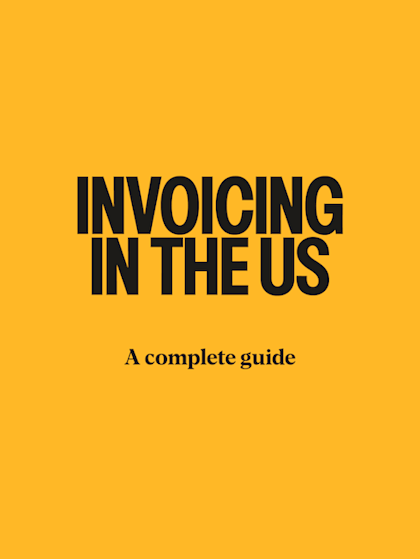
Advantages & disadvantages of invoices
Last editedMay 20201 min read
Advantages, disadvantages, and use cases of invoice billing.
What are the advantages of using invoices?
You have a right to be paid for your efforts, and you can set your own payment terms.
These should be made clear at the start of a trading relationship, but it is the invoice that formalizes your demand for payment. The use of an invoice has several advantages:
It prompts payment - Where upfront payment is not required, the chances are that a customer won’t pay you without receiving an invoice first. It’s rare to be paid for goods or services before an invoice has been issued, with debts rarely settled voluntarily and without a prompt.
Invoices remind clients of the work completed or goods provided - It’s an itemized bill, so a customer can see what they’re getting for their money.
They’re a useful record-keeping tool� - The IRS requires businesses to retain records for several years. Not having up-to-date and accurate archives of invoices issued and received can risk severe legal repercussions.
It’s an opportunity to send a positive message about your company and brand - This applies to the document itself – how polished it looks, with a company logo, website address, and use of professional language – and the invoicing process. Efficient invoice generation and payment collection can improve customer satisfaction. Equally, poorly managed systems can easily damage a company’s reputation.
What are the disadvantages of using invoices?
There are some potential downsides to using invoices, but these are mostly caused by poor management and inadequate processes:
A badly-drafted, vaguely-worded document can be wrongly interpreted or easily disputed, delaying payment.
If product sales or the hours of work undertaken are not meticulously noted, an invoice can appear approximate and could be challenged. A good invoice is clear, detailed, and precise.
Invoices being issued late can encourage customers to be equally relaxed about settling the debt. Demands should be raised immediately to impress upon the client the need for swift payment.
When is invoicing not appropriate?
Invoices are not suitable for all types of payment. For example, if there is no ongoing relationship with the customer or if payment is required upfront, an invoice wouldn’t be used.
Some industries use a lot of upfront payments for goods or services, such as retail and e-commerce. Merchants within these sectors require instant payment before they hand over or dispatch physical goods.
Those operating in the hospitality industry, such as bars and cafes, also often take cash or digital payments from customers on the spot, so they rarely issue invoices.
